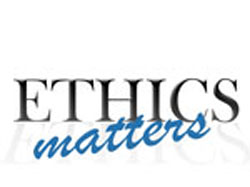Thomas R. Fox
An article last week by Matt Ellis, writing in his FCPAméricas Blog, who posted an article entitled, “Bad Press is the Worst Sanction”. The second was an article yesterday, in the Op-Ed page of the New York Times by Greg Smith entitled, “Why I am Leaving Goldman Sachs”.
Ellis began his posting by stating, “In Latin America, a company’s reputation matters.” He based this statement on a recent survey, conducted by Germany’s Humboldt-Viadrina School of Governance, which sought to assess how incentives and sanctions affect a company’s willingness to take seriously ethical behavior. Ellis reported that the survey found that in Latin America, more people than in any other region rated reputational considerations as the most important factor to motivate businesses to counter corruption, which was a higher percentage than any other geographic region reviewed.

Unfortunately this does not appear to be true at Goldman Sachs, at least according to Smith, who as of yesterday, is listed as former “Goldman Sachs Executive Director and head of the firm’s equity derivatives business in Europe, the Middle East and Africa.” In absolutely damning detail, Smith stated that the “decline in the firm’s moral fiber represents the single most serious threat to its long term survival.” What is this “decline in moral fiber” that Smith anguished over? It is that Goldman Sachs, in his opinion, now puts its own monetary interests ahead of its clients.
Smith listed the “three quick ways to become a leader” at Goldman Sachs. They are “a) Execute on the firm’s “axes,” which is Goldman-speak for persuading your clients to invest in the stocks or other products that we are trying to get rid of because they are not seen as having a lot of potential profit. b) “Hunt Elephants.” In English: get your clients — some of whom are sophisticated, and some of whom aren’t — to trade whatever will bring the biggest profit to Goldman. Call me old-fashioned, but I don’t like selling my clients a product that is wrong for them. c) Find yourself sitting in a seat where your job is to trade any illiquid, opaque product with a three-letter acronym.”
While averring that he did not “know of any illegal behavior” he bemoaned “It makes me ill how callously people talk about ripping their clients off.” Smith intoned that senior management did not seem to understand what he termed a “basic truth: If clients don’t trust you they will eventually stop doing business with you.”
So how do ethics matter in the United States of America? For Goldman Sachs it may well have something to do with its stock value which went down 4.17 (approximately 3.35%) points yesterday. With approximately 50 million outstanding shares, that is (according to my trial lawyer math) somewhere in the range of $1.5 to $2 billion in shareholder value that went poof yesterday. I guess ethics does matter.
How will Goldman Sachs respond to this article? Its response may well tell the story of its commitment to ethics. Will it attack Greg Smith as a (now) former disgruntled employee out on some type of vendetta? Will it file suit against Smith for libel? Will it issue a strident press release that it is absolutely committed to ethical values? Or will it be as Smith states, “I hope this can be a wake-up call to the board of directors.”






